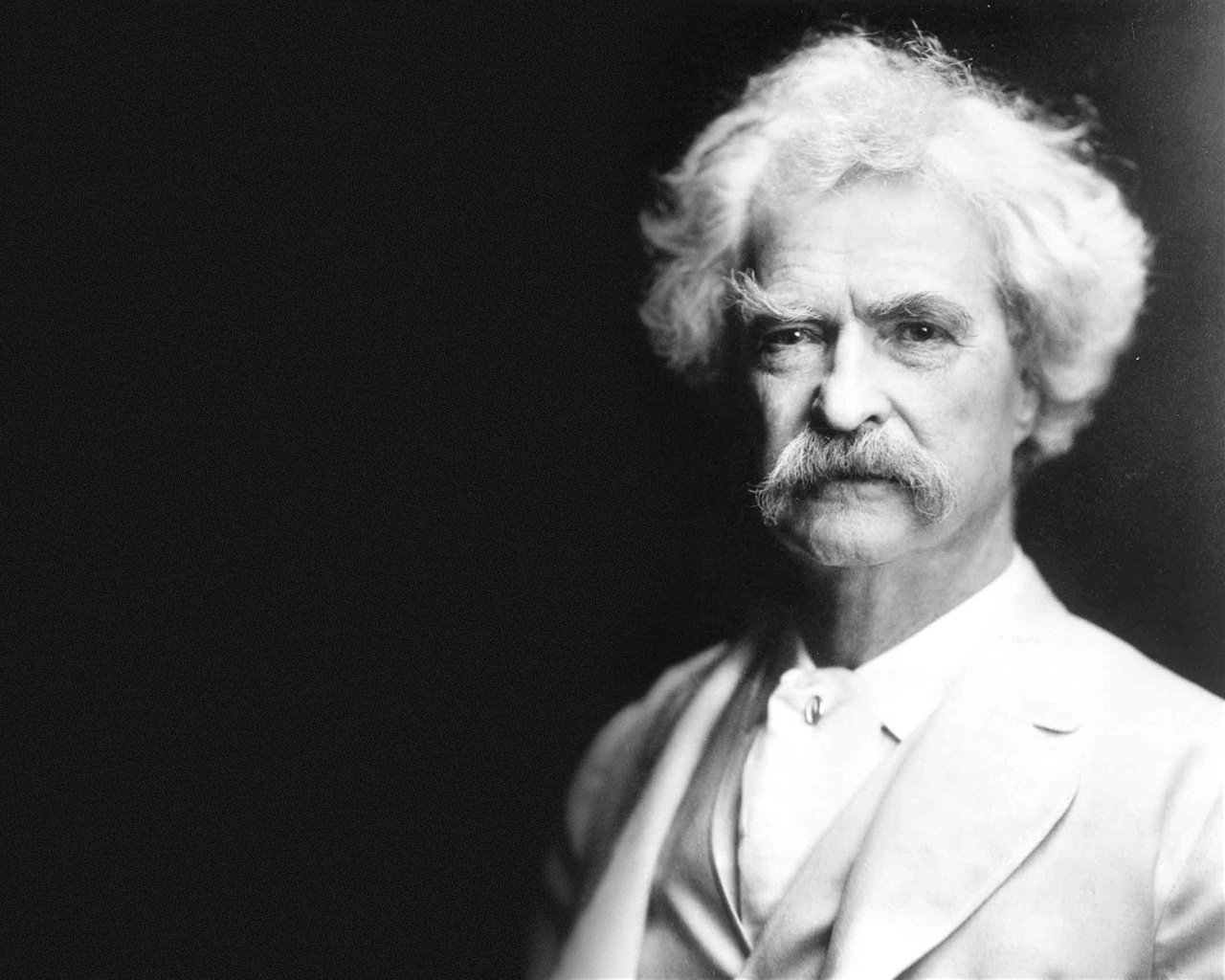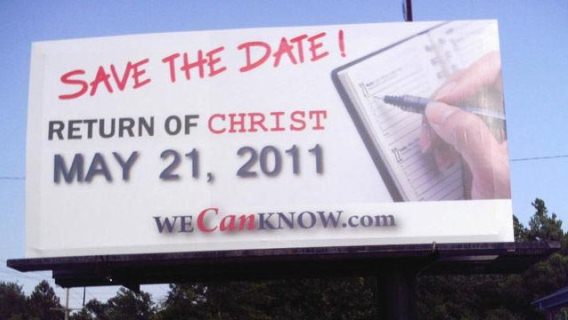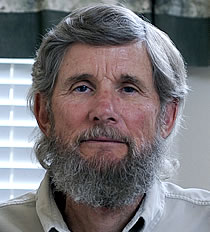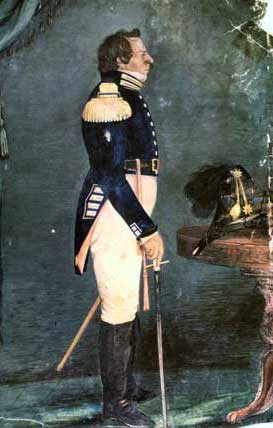Category: "faith/skepticism"
Christian apologist was a sexual predator
When Christian apologist Ravi Zacharias died earlier this year, one of my cousins wrote a very nice tribute to him and described how his faith was strengthened by the apologist. I left a comment stating that he'd been very influential over me as well back when I was a Christian. I also said, "Even his scandals were pretty minor and do very little to make me doubt his sincerity." At the time, the only scandals I had in mind were Zacharias's extramarital affair and the way he lied about his credentials and work history. There were other accusations at the time, but they were unconfirmed as far as I could tell.
This week Zacharias's organization released the preliminary report of the outside investigators they hired and those more serious accusations have now been confirmed. He owned two spas and had a pattern of exposing himself to his employees, touching them inappropriately, and propositioning them for sex. These are the actions of a sexual predator. The early report hints at other abuses that they are still investigating and the full report should be out by February.
So, I have to take back what I said. His scandals weren't minor. He was dishonest and predatory, abusing the power he had over his employees, humiliating and traumatizing them. I apologize for minimizing their pain. In light of this information, I now do have doubts about his sincerity. The abuse, denial, and coverups suggest that he probably didn't believe everything he was saying on his speaking tours. It stings to realize that I spent so much time listening to someone who was so dishonest. I already considered much of what he said to be mistaken, but I didn't feel lied to. Now I do.
Here is the preliminary report.
A GOP Anti-abortion Policy Caused a 40% Increase in Abortions
A new study shows that a Republican anti-abortion policy has led to a 40% increase in abortions.
In 1984, Ronald Reagan put a policy in place relating to foreign aid. The rule says that when an overseas aid organization accepts funding from the US government, it has to agree to not even mention abortion as an option when giving counseling and medical care to locals. Reagan announced the rule in the capital of Mexico, so it's come to be known as the "Mexico City Policy." It's also often referred to as the "global gag rule" since it bars these organizations from even talking about abortion with the the people they're helping.
 Since then, the policy has been rescinded by every Democratic president and then reinstated by every Republican president. This might make for a confusing landscape for grantees, but it also provides researchers with a great opportunity to study the effects of this on-again, off-again rule. The results my surprise many Republican voters.
Since then, the policy has been rescinded by every Democratic president and then reinstated by every Republican president. This might make for a confusing landscape for grantees, but it also provides researchers with a great opportunity to study the effects of this on-again, off-again rule. The results my surprise many Republican voters.
A new study from Stanford University, released last week by The Lancet Global Health, shows that the gag rule has led to a 40% INCREASE in the abortion rate in Africa. In other words, the Mexico City Policy, which was intended to reduce abortion, actually caused MORE abortions. Withholding funding from aid groups that teach poor families about all their family planning options has led to a decline in contraception use and a corresponding increase in the number of abortions.
Voters who consider themselves "pro-life" first and foremost have had to put up with an increasing amount of nonsense from the politicians they support. Many have been willing to hold their nose and vote for nominally anti-abortion politicians who are pro-war, pro-death-penalty, corrupt, incompetent, and wholly owned by billionaires as long as they still favor restricting abortion. I was a voter like this in the first presidential race I was able to vote in: 2000. Nothing mattered to me as much as the fact that Bush was going to work toward outlawing abortion.
I began to snap out of it when I saw the GOP charging toward war in Iraq, cheered on by evangelical Christians. As the American and Iraqi casualties piled up and the basis of the war was shown to be a lie, I realized that these decisions weren't made by people who valued life like I thought they did. In time, I also saw that the measures they took to restrict abortion were not helping. Study after study has shown that the best ways to cut the abortion rate are expanding access to contraception, providing accurate sex education, and maintaining a safety net that protects families from abject poverty. Nothing else works. Not bans. Not restrictions on clinics. And certainly not voting for people eager to take bodily autonomy from women.
Opponents of abortion rights are frequently accused of attempting to control women. In my experience, this accusation is often unfair. When I was an anti-abortion voter, I sincerely thought that the GOP's policies would reduce abortion. I don't think I was aware of details like the Mexico City Policy, and I certainly didn't know it was so counterproductive. If I had known that it made the problem worse and if I'd still supported it, then questioning my motivations would have been fair game.
So, the facts are clear: The Mexico City Policy has led to more abortions, not less. Voters who claim to want to reduce abortions now have an important choice to make. Do you want to continue supporting a rule that makes the problem worse, or do you want to learn from this 35-year experiment and start supporting solutions that actually help?
Read about the Stanford study here. You'll find a summary there as well as a link to the full study, but that's behind a paywall. I snagged a copy through my college's access to the journal, so get in touch with me if you'd like to take a look.
Is Shakespeare Dead? by Mark Twain

This little book is hilarious, but it's not about Shakespeare. Oh sure, on the surface it's an investigation into who authored the Plays and Poems, but if you only read it on the surface then you'll find it a puzzling and frustrating book. In the very first chapter, Twain explains that he had no good reason to care about the controversy to begin with. But the riverboat pilot he was apprenticed to loved to recite Shakespeare and draw our young Twain into debating the authorship question.
This passage seems to be one of the keys of the whole book:
Study, practice, experience in handling my end of the matter presently enabled me to take my new position almost seriously; a little bit later, utterly seriously; a little later still, lovingly, gratefully, devotedly; finally: fiercely, rabidly, uncompromisingly. After that, I was welded to my faith, I was theoretically ready to die for it, and I looked down with compassion not unmixed with scorn, upon everybody else's faith that didn't tally with mine. That faith, imposed upon me by self-interest in that ancient day, remains my faith to-day, and in it I find comfort, solace, peace, and never-failing joy. You see how curiously theological it is.
This is a book about how we form our beliefs and how we attempt to share them: Not very well on either count. All throughout the book he makes it clear that both sides of the controversy built their arguments on conjecture. Yet he appears to take the discussion quite seriously at other points. I can see why some readers get frustrated. By the opening of chapter 11 he comes clean:
Am I trying to convince anybody that Shakespeare did not write Shakespeare's Works? Ah, now, what do you take me for? ... No-no, I am aware that when even the brightest mind in our world has been trained up from childhood in a superstition of any kind, it will never be possible for that mind, in its maturity, to examine sincerely, dispassionately, and conscientiously any evidence or any circumstance which shall seem to cast a doubt upon the validity of that superstition. I doubt if I could do it myself.... We get them all at second-hand, we reason none of them out for ourselves. It is the way we are made.
Now Twain is taking up the real subjects of the book: Prejudice, intolerance, being entrenched in an opinion that is based on nothing, and those subtle ways our speech can denigrate the people foolish enough to belong to a group other than ours. You can almost see him winking at us as lampoons the pearl-clutching call for civility just before slandering his opponents as "thugs":
The upholders of the Stratford–Shakespeare superstition call US the hardest names they can think of, and they keep doing it all the time; very well, if they like to descend to that level, let them do it, but I will not so undignify myself as to follow them. I cannot call them harsh names; the most I can do is to indicate them by terms reflecting my disapproval; and this without malice, without venom. To resume. What I was about to say was, those thugs have built their entire superstition upon INFERENCES...
This is one of many spots where Twain had me laughing out loud. He also got me every time he quoted Shakespeare's epitaph, a running joke about how those barren and trivial words are the only ones that can be reliably attributed to Stratford Shakespeare.
Seeing this nugget from chapter 12 as a "quote of the day" yesterday is what prompted me to read the book:
I cannot call to mind a single instance where I have ever been irreverent, except toward the things which were sacred to other people.
When he wrote that, Twain had an even better line languishing in his unfinished novel The Mysterious Stranger:
Irreverence is another person's disrespect to your god; there isn't any word that tells what your disrespect to his god is.
Little about argumentation has changed in the 100 years since Mark Twain wrote this book. We still form opinions based on sketchy information (now we call it fake news) and we still talk to each other like enemies, even when the dispute is a trivial one. We go to any lengths to excuse the bad behavior of people in our tribe and easily convince ourselves that we need not worry about the humanity of the "thugs" in other tribes. Would Twain have been surprised to know that the passage of a century would change so little? Of course not, he predicted it would take at least three centuries (the book was published in 1909):
I haven't any idea that Shakespeare will have to vacate his pedestal this side of the year 2209. Disbelief in him cannot come swiftly, disbelief in a healthy and deeply-loved tar baby has never been known to disintegrate swiftly, it is a very slow process. It took several thousand years to convince our fine race--including every splendid intellect in it--that there is no such thing as a witch; it has taken several thousand years to convince that same fine race--including every splendid intellect in it--that there is no such person as Satan; it has taken several centuries to remove perdition from the Protestant Church's program of postmortem entertainments; it has taken a weary long time to persuade American Presbyterians to give up infant damnation and try to bear it the best they can; and it looks as if their Scotch brethren will still be burning babies in the everlasting fires when Shakespeare comes down from his perch.
He wrote that paragraph with his tongue firmly in-cheek, just as he wrote most of this book. He knew full well that millions still believed in witches and Satan in 1909, just as millions continue to do today. Will we ever get better at discerning truth from fiction? Maybe. Probably not. But surely all reasonable people can agree that Shakespeare's epitaph is garbage:
Good friend for Iesus sake forbeare
To digg the dust encloased heare:
Blest be ye man yt spares thes stones
And curst be he yt moves my bones.
You can read the full text of Mark Twain's Is Shakespeare Dead? here: http://www.online-literature.com/twain/is-shakespeare-dead/1/
Discrimination Remains Legal
Under current law in Adrian, Missouri, it is completely legal for someone to be fired, evicted, or refused service just because they’re gay. When I proposed a nondiscrimination ordinance to the Adrian City Council, one objection opponents raised was “If that happens, they can just file a lawsuit.” I pointed out that such a lawsuit would go nowhere in a state that doesn’t outlaw that type of discrimination. A recent court ruling proves that discrimination remains legal in Missouri.
In late 2013, before I introduced the ordinance, I approached the other members of the council and explained that gay and transgender people can legally get fired, evicted, or refused service based on their orientation or gender identity. Two members agreed with me that this was unjust and they said they would support a nondiscrimination ordinance. Several cities in Missouri had already adopted such ordinances because these types of discrimination remain legal under state and federal law.
Having secured the three votes needed for passage, I recruited some help in drafting the bill. I reached out to several equal rights groups and Aaron Malin, Executive Director of Missourians for Equality, agreed to help. We looked over Adrian’s current municipal code and Aaron put together two options that would accomplish our goal of making discrimination illegal. I added the topic to the agenda for the March, 2014 meeting and arrived with both ordinances in hand.
Based on an earlier council discussion, I knew that the city attorney was a fundamentalist Christian. So, I wasn’t surprised when she opposed the ordinance. She argued that this law would open the city up to lawsuits. I pressed her to provide examples and she wasn’t able to. But her objections must have given one council member second thoughts because when the vote was cast, only two members supported it. The other two opposed it. The Mayor of Adrian only votes in order to break a tie. As I feared, he cast a no vote, defeating the bill.
During the time between the March and April meetings, I repeatedly tried to get the city attorney to elaborate on her objections. She ignored all my requests. I spoke with the council member who had pledged to support the bill before opposing it and tried to understand the reasons behind that change. In our original conversation this member had said, “If someone wants to work, they shouldn’t have to worry about being fired for that.” I still don’t understand exactly what changed this person’s mind.
For the April meeting, the last one before my term ended, Mr. Malin appeared before the council to answer questions. He explained that none of the other cities have experienced legal trouble after passing nondiscrimination ordinances. In fact, the council members who tried to stop the law from passing in Kirksville were voted out in the next election. St. Louis, Kansas City, and Columbia have seen no ill effects after passing their equality ordinances.
In the meeting, I asked the city attorney if she had come up with any examples of cities getting into legal trouble after passing similar ordinances. She still had none, as I expected. But she did surprise me by dropping that line of argument altogether and switching to a new one. Now she said that we should only pass laws to address existing problems and since we didn’t have evidence of any ongoing discrimination, it would be wrong to pass the ordinance.
In the months since, I’ve thought a lot about how I could have responded to that. I wish I had said something like this: “Those of us who have spent most of our lives in Adrian can probably name at least one LGBT person who has left our city, at least in part, because of the way they were treated. Maybe you haven’t seen that side of Adrian in your brief time here, counsel, but I believe our city would be better if we were open and welcoming to all types of people. Yes, there is a problem. Discrimination remains legal here and we have the power to change that.”
When the vote was cast, the measure failed again, 3-2, with the mayor breaking the tie. It was a disappointing end to my time on the council. I’ve often thought about writing this article about the experience, but I put it off because it seemed futile and upsetting. This week, two items in the news brought my mind back to that meeting a year and a half ago.
On October 27, 2015, the Western District Missouri Court of Appeals ruled against James Pittman, a Jackson County man who had been harassed and then fired from his job for being gay. From the ruling: “If the Missouri legislature had desired to include sexual orientation in the Missouri Human Rights Act’s protections, it could have done so. No matter how compelling Pittman’s argument may be and no matter how sympathetic this court or the trial court may be to Pittman’s situation, we are bound by the state of the law as it currently exists.”
The Court recognized that Pittman was treated unfairly. But they were unable to rule in his favor because federal, state, and local lawmakers (mostly Republicans) have refused to outlaw this type of discrimination. This is a problem we can fix. But as long as keep electing people who put their own prejudices ahead of their neighbors’ well-being, then discrimination will continue. State Representative Stephen Webber (D - Columbia) has repeatedly introduced a bill in Jefferson City to outlaw this type of discrimination, but Republican leadership in the state House has blocked it each time.
The second news item that brought this episode back to the front of my mind was from Houston, Texas. In May of 2014, just a month after the Adrian council rejected my ordinance, the Houston city council passed a similar nondiscrimination law with their mayor’s support. Conservative religious groups immediately began working to repeal the equal rights ordinance. They managed to get a referendum on the ballot and they launched a transphobic campaign focused on the fear that men would invade women’s bathrooms as a result of the nondiscrimination law. Last week, the referendum struck down the equal rights law by a vote of 61%-39%. Now discrimination is legal again in Houston.
“The arc of the moral universe is long, but it bends toward justice.” That line is often attributed to Martin Luther King, Jr., but it is not original to him. It dates back to Theodore Parker and the abolition movement of the 1850s. Changing the prejudiced mindset of a nation takes many generations. We’ve seen much progress since Parker first wrote those words, but there’s much left to do. A Supreme Court ruling in 2003 prevents gay and lesbian citizens from being thrown in jail for who they are. Another ruling from last summer allows same-sex couples to marry. But they can still be evicted, fired, or thrown out of a restaurant just for refusing to hide who they love. Is that the kind of community we want to be?
Abraham's Faith
Imagine this scenario. A close friend comes to you and says that they have had a powerful religious experience. The Creator of the universe has audibly spoken to them, commending them for their strong faith. But the voice also made a request. It commanded your friend to take their 13-year-old son, tie him up, stab him in the heart and then burn his body as a sacrifice to the voice. Your friend soberly tells you that he intends to obey the voice. Do you a) congratulate your friend on his strong faith and offer to help carry the wood for the fire, or b) promptly call the police?
Now imagine the same scenario, but rather than a close friend in the present day, it's a stranger in the distant past. Rather than hearing your friend's firsthand account, you read about the story in a legend that has been passed down through the centuries. Do you think of this person who is willing to kill their own child as a hero or a villain?
Of course, I didn't invent this scenario, it comes straight out of the Bible. The story of Abraham and Isaac is told in Genesis 22. This is not some obscure passage that I'm taking out of context. Abraham is a central figure in Christianity, Judaism and Islam, and all three religions include this story as evidence of Abraham's great faith. The Christian New Testament refers to this episode specifically when listing some exemplary displays of faith (Hebrews 11:17-19).
I wish the scenario I presented above was just hypothetical. Tragically, the members of some present-day religions are still asked to place their faith above the well-being of their children. A Jehovah's Witness stood on my front step and told me that if her own child needed a blood transfusion to live, she would rather let them die than to violate her religion's rules against transfusions. Like Abraham, she had faith that her god would raise the child from the dead.
The problem with faith is that, by definition, it's detached from reality. Abraham is considered a hero because he was willing to look past the consequences of his actions and focus on that voice in his head. The Witness at my door was also ready to downplay the consequences of her beliefs. It seems to me that making a decision based on faith is misguided at best. There is a better way.
Or, today's theists can hope that Doc Brown will have intervened and spared them the humiliation of trying to defend and spread a religion supposedly founded by a man who agreed to obey a disembodied voice by killing his son.
The End is Not Near
On May 21, 2011, hundreds of people will wake up with the faithful and eager expectation that they will be taken up to heaven before the day is over. They have been purchasing advertising and traveling around the country to spread the word that the end is near. The prediction was made by radio broadcaster and religious leader Harold Camping. This brings up several questions, including
Should we take this prediction seriously?
What will Camping's followers do when the prediction is proved wrong?
Is this type of behavior a normal part of Christian belief or an aberration?
I'd like to approach these questions by looking at similar situations in history. This is an incomplete list. We can start with Camping himself. This isn't his first time predicting the end of the world.
Harold Camping
September, 1994
In the early 90s, he released a book called 1994? As the title suggests, he was not claiming to be absolutely certain of the date. But when his date came and went without any apparent end of the world, he maintained that his calculations were correct in pointing to it and he continued to have a strong following. He made excuses about mistaken interpretations and the followers who had been so certain that his date was correct were suddenly no longer concerned about 1994.
Michael Travesser
October 31, 2007
Wayne Bent, known to his followers as Michael Travesser, led a small religious sect in New Mexico. He claimed to be the Messiah and predicted that the world would and on October 31, 2007. A documentary film crew from the United Kingdom was on hand when the date arrived. When nothing happened, Bent changed the date to December, 2007 and there was no mass defection from his sect.
Edgar C. Whisenant
Septemember 1988
Edgar C. Whisenant wrote a book called 88 Reasons Why the Rapture Will Be in 1988. He sold more than 4 million copies. When this prediction wasn't fulfilled he went on to set several more dates (1989, 1993, and 1994).
Hal Lindsey
1980s
Hal Lindsey, author of The Late, Great Planet Earth never named a specific date for the end of the world, but he did make several statements suggesting that it would happen during the 1980s. In the early 90s he release a new book called Planet Earth - 2000 A.D. It said that the world would probably end before the year 2000. Despite his failed predictions, Lindsay continued to be a popular author and host of a show on the Trinity Broadcasting Network.
Assemblies of God
1934 or 1935
The Weekly Evangel, an official publication of the church, predicted that World War I would lead to Armageddon. Despite this failed prediction, the Assemblies of God have around 60 million members today.
Charles Taze Russell and the Jehovah's Witnesses
1874
Russell was an important figure in the earliest days of the Jehovah's Witnesses. He believed that 1874 was the date for the return of Jesus. After that date he didn't abandon it but rather claimed that Jesus had returned in 1874 and established an invisible kingdom. Jehovah's Witnesses went on to predict a whole series of dates for the end of the world.
William Miller
March 21, 1844
William Miller was a Baptist preacher who calculated that the return of Jesus would occur on or before March 21, 1884. When this date proved wrong, he pushed it back a month. When that also proved wrong one of his followers set the date as October 22, 1844. Thousands of followers eagerly expected to meet Jesus on this day. Many of them had even given away all of their belongings. The failure of Jesus to appear became known as the Great Disappointment. Many members left the movement, but others stayed and formed the Seventh-day Adventist church.
Mormonism
1830s
From the beginning of the church he established, Joseph Smith told his followers that the world would be ending soon. Though he didn't give specific dates, he did claim to know where it would happen. He directed his followers to build a city called Zion in Jackson County, Missouri. Though Smith prophesied in 1830 that the "hour is nigh and day soon at hand" when Jesus would return, Smith died in 1844 without seeing Jesus return and without his church establishing a city in Jackson County.
Martin Luther
1540s
The founder of the Lutheran Church is said to have predicted, "The world runs and hastens so diligently to its end that it often occurs to me forcibly that the last day will break before we can completely turn the Holy Scripture into German. For it is certain from the Holy Scriptures that we have no more temporal things to expect. All is done and fulfilled." This sense of urgency was also present in other early Lutheran leaders, including Adam Nachenmoser who set the date as 1635.
Joachim of Fiore
1260
Joachim of Fiore, a mystical monk, predicted that 1260 would see the establishment of a Kingdom of the Holy Spirit. He died in 1202 and after his prediction proved false the Catholic Church condemned him as a heretic.
Thiota
847
Thiota predicted the end of the world would happen in 847. She had a large enough following to draw the attention of Catholic bishops, who had her publicly whipped.
Authors of the New Testament
50-120
Several passages in the New Testament claim that the world is about to end. Some examples:
"In just a little while, he who is coming will come and will not delay." (Hebrews 10:34)
"You too, be patient and stand firm, because the Lord’s coming is near." (James 5:8)
"The end of all things is near. Therefore be alert and of sober mind so that you may pray." (1 Peter 4:7)
"Dear children, this is the last hour; and as you have heard that the antichrist is coming, even now many antichrists have come. This is how we know it is the last hour." (1 John 2:18)
"He who testifies to these things says, 'Yes, I am coming soon.' Amen. Come, Lord Jesus." (Revelation 22:20)
Despite these failed predictions, some Christians continue to believe that the Bible is a flawless book and that the end of the world is still imminent.
The apostle Paul
Within his own lifetime
Scholars tell us that 1 Thessalonians was the first book of the New Testament to be written. Chapters 4 and 5 show that both Paul and his audience expected Jesus to return during their lifetimes. The church in Thessalonica was concerned about the fate of members who were dying in the meantime, but Paul reassures them that these deceased believers will be included in the return of Jesus just as the living members would.
"For the Lord himself will come down from heaven, with a loud command, with the voice of the archangel and with the trumpet call of God, and the dead in Christ will rise first. After that, we who are still alive and are left will be caught up together with them in the clouds to meet the Lord in the air. And so we will be with the Lord forever." (1 Thessalonians 4:16-17)
The second epistle to the Thessalonians, though probably not written by Paul, describes the second coming as something that will happen further on into the future after some conditions are met.
Jesus
Before the generation then living passed away
Jesus, like John the Baptist before him and millions of Christians after him, seems to have been convinced that he was living in the time just before the end of the world as he knew it.
"Truly I tell you, some who are standing here will not taste death before they see the Son of Man coming in his kingdom." (Matthew 16:28)
"And he said to them,'Truly I tell you, some who are standing here will not taste death before they see that the kingdom of God has come with power.'" (Mark 9:1)
After detailing events leading up to end of world, Jesus says, "Truly I tell you, this generation will certainly not pass away until all these things have happened." (Mark 13:30)
For centuries Christian theologians have tried to harmonize these passages with the fact that Jesus hasn't yet returned. Various conflicting theories have been proposed, but none has gained universal acceptance.
There's another explanation, though it may be difficult for some to accept: Jesus was wrong. If we assume for a moment that he actually existed and said these things, we can see him as yet another failed apocalyptic prophet. As we've seen, this is a common story. People who claim to know that the world is about to end are often able to attract followers. When the teacher turns out to be wrong, the followers may hang around and keep the group going, reinterpreting the teacher's words as necessary.
Conclusion
Let's return to our questions. Is this end-times mania a normal part of Christianity? Expecting the world to end has always been a significant part of the Christian religion, going all the way back to its two main founders, Jesus and Paul. Most people refrain from latching on to a specific date (often citing Matthew 24:36 where Jesus says no one knows the day or the hour). But eagerly expecting Jesus to return is a normal part of faith for millions.
What will Camping's followers do when the prediction is proved wrong? I suspect that some will be disappointed and leave the group. Some will remain convinced that the day was significant. Camping himself will probably "discover" a mistake in his calculations and set another date in the near future. But we can be fairly sure that he will maintain at least some followers, just as Christianity did even after Jesus' prediction proved false.
Should we take this prediction seriously? Extraordinary claims require extraordinary evidence. Most of the assertions of religion are structured to be too vague for falsification, but Camping's prediction gives us a rare chance to put a religious idea to the test. It will fail that test, as supernatural claims always have when they wander into the realm of cold, hard facts.
Religious Slogan in City Hall
A lawyer in Springfield, MO is sending out letters to several cities in Missouri, asking them to prominently display the motto "In God We Trust" in city halls. He even sends along a sample resolution so the councils can vote the display in. Our mayor decided to bring the resolution before the council during our regular April meeting on Monday. We engaged in a discussion for about 15 minutes and then voted 3-1 to place a 8.5" x 11" sign with the slogan in city hall. I read the following statement and had it entered into our minutes:
Questions of religious faith are not the business of this municipal government. As Thomas Jefferson said, "the legitimate powers of government reach actions only, and not opinions." I support the right of everyone to express any belief or opinion they like and the government must protect those rights. As part of that protection, the government remains neutral on questions of religious opinion.
I spoke in favor of the separation between church and state when I was a pastor and I continue to do so today as a non-believer. 35 million American citizens are non-religious and there are almost a million in Missouri. I've spoken with several people in Adrian, both religious and non-religious, who oppose the posting of this motto in city hall.
We have gotten along just fine without a motto on the wall of our council chambers. If we were going to add one, we should choose one that's more inclusive such as the original motto of the United States, "E Pluribus Unum (Out of many, one)" or the motto of Missouri "Salus populi suprema lex esto (Let the good of the people be the supreme law)."
Regardless of your religious perspective, I hope you'll recognize that this entanglement between religion and government is good for neither the church nor the state. Our fourth President, James Madison, said it well, "I have no doubt that every new example will succeed, as every past one has done, in showing that religion & Govt will both exist in greater purity, the less they are mixed together."
This sign will be a minor annoyance and discouragement to me when I see it. And it may serve as justification for further government endorsements of religion, just as "But it's on our money" was repeatedly presented as evidence in favor of posting the motto. But will it have any substantial effect on the business we conduct on the city council? No. I also trust that this episode won't prevent the council from continuing to work for the good of our city. I have no doubt that the aldermen who voted for this had the very best intentions. I hope that they also understand that I, too, was doing what I thought was best for the city. If you'd like to see what was said during the discussion, take a look at this transcript I prepared.
WBC is Not Welcome Here
A family in our area is suffering through the tragedy of losing a loved one who was in the military and the hateful Westboro Baptist Church is coming from Witicha to Harrisonville to rub salt in their wounds by protesting the funeral. I think everyone in the area can agree that these people are not welcome. Regardless of our opinions about gay rights, we can all recognize that this stunt is just mean. Here's what they had to say when announcing the protest on their website:
Our Lady of Lourdes Catholic Church in Harrisonville, MO November 23, 2010 9:15 AM - 10:00 AM
WBC will picket a respectful distance from Our Lady of Lourdes Catholic Whorehouse where they will take a break from raping the children long enough to worship the corpse of Cpl. Jacob R. Carver whom God blew up with an IED, dispatching his soul to hell forever. He is not a hero! He fought for the fags' rights to eat each other's feces and the whore's right to murder her unborn child. Our message is for the living, and we remind you Missouri brutes again that you have made God your #1 enemy by your refusal to obey. Because I have called, and ye refused; I have stretched out my hand, and no man regarded; But ye have set at nought all my counsel, and would none of my reproof: I also will laugh at your calamity; I will mock when your fear cometh; When your fear cometh as desolation, and your destruction cometh as a whirlwind; when distress and anguish cometh upon you. Then shall they call upon me, but I will not answer; they shall seek me early, but they shall not find me: For that they hated knowledge, and did not choose the fear of the LORD: They would none of my counsel: they despised all my reproof. (Pr. 1:24-30.) It's too late for Doomed america and Doomed missouri! If there be any among you that has an ear to hear, come out from among them and be separate, and do not partake of their wickedness -- DO NOT WORSHIP THAT DEAD BODY! Fear God and keep His commandments -- that is the whole duty of man. (Ec. 12:13.) Amen!
As hateful and nonsensical as that is, it's still mild compared to this law, supposedly from the mouth of God:
If a man has sexual relations with a man as one does with a woman, both of them have done what is detestable. They are to be put to death; their blood will be on their own heads. Leviticus 20:13
Though the WBC only uses words, this verse promotes commands actual physical violence and murder. It's good that so many of us can agree that the WBC is wrong and unwelcome. Will you also join me in condemning and rejecting the Bible verses that fuel their hate?
Prayer and Cancer
 I have some honest questions for my Christian readers. If I am misunderstanding what you believe, please correct me.
I have some honest questions for my Christian readers. If I am misunderstanding what you believe, please correct me.
Do you believe that your god knows about a cure for cancer and yet refuses to share that information with humans? If he knows everything and is capable of communicating with humans (two ideas most Christians would agree with), then why is he holding out on us? Millions of people have prayed fervently for the god's help in the fight against cancer. There are any number of ways he could communicate this vital information: A full-page ad in a major newspaper, a half-hour special on network television, a semester long class at a university, a press conference at the Mayo Clinic, or if subtlety were important he could anonymously scribble the some hints on a whiteboard in a cancer research facility.
What would you think of a team of researchers who discovered a cure for cancer and then refused to share it? I think it would be a vile thing to do and I don't see how it's any better if the perpetrator were a deity. Of course, a cure for cancer is just one of the many pieces of information that humans are desperately seeking. An omniscient deity could have revealed all kinds of information throughout human history and saved millions of lives. But so far those answers have come from the painstaking work of scientists and inventors, not from religious texts or traditions.
How do you reconcile the idea of praying for someone who has cancer with the idea that your god is withholding the information that would answer your prayers?
Muslim Community Center
If Muslims shouldn't build a community center in lower Manhattan because a few nutjobs from one sect of their religion committed grave crimes near there, then we shouldn't allow any churches to be built near schools because a few nutjobs from one sect of that religion have raped children.
Or maybe the psychopath killers in al-Qaeda don't represent all Muslims any more than the psychopath rapist priests represent all Christians.










Recent comments